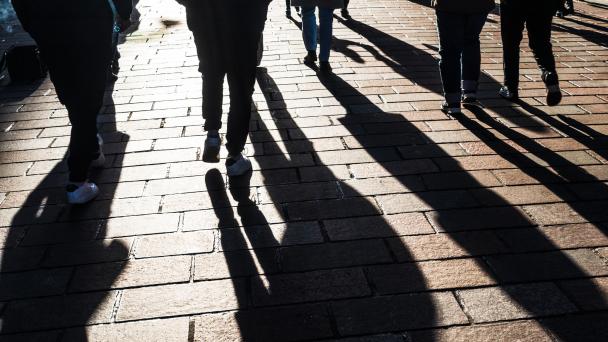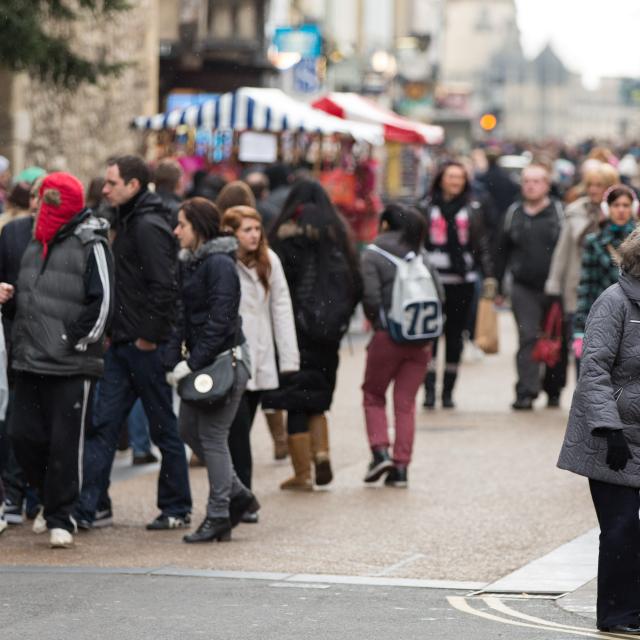British Social Attitudes 43


Labour fought the General Election in July determined not to be portrayed as a party that would increase taxes on ‘working people’. Even before Rishi Sunak fired the starting gun, it had backed two cuts in national insurance made by the Conservative government in January and April. Meanwhile, in the election campaign itself, the party promised not to increase rates of income tax, VAT, and national insurance.
In one sense Labour’s stance was not surprising. After all, taxation as a percentage of GDP increased from 33% in 2019/20 to 37% in 2023/4 and, on the current trajectory, is set to increase to a record high of nearly 38% in 2026/7. Voters might be thought to be looking for relief from a series of tax rises occasioned by the COVID pandemic and the cost of living crisis.
Yet, on the other side of the ledger, public services are in trouble. Waiting times for NHS treatment have reached a record high. Schools are having to deal with the long-term impact of the COVID-19 pandemic on some pupils’ educational progress. Social care can be difficult to find. Contrary to the assumption seemingly made by Labour during the election campaign, perhaps voters’ concerns about public services outweigh their worries about how much tax they are paying.
This was certainly the impression created by the most recent British Social Attitudes survey (BSA), conducted in autumn 2023. Asked whether, if forced to choose, the government should increase taxes and spend more on ‘health, education, and social benefits’, reduce taxes and spending, or keep things as they are, 46% said increase taxes and spending, while 41% said keep things as they are. Just 10% felt taxes and spending should be reduced.
True, that 46% figure was down on the 55% recorded in 2022. Even so, it suggested the public had still not reacted against the increase in tax and spend in the manner they did when the 1997-2010 Labour government presided over an increase in taxes from 30% of GDP in 1996-7 to 34% at the time of the financial crash in 2008. After that experience, just 31% backed an increase in taxes and spending, half as many (62%) as did so when Labour first came to power in 1997.
In the weeks immediately following July’s election, the National Centre for Social Research has recontacted nearly 1,800 of those who took part in the 2023 British Social Attitudes survey and asked them not only how they eventually voted, but also their current attitudes towards both tax and spend and the state of the health service.
Two key findings emerge. First, there is still little sign of a public reaction against the rise in the tax burden. At 48%, the proportion who say that taxes and spending should be increased is much the same as the 46% who did so last autumn. Similarly, the proportion (42%) who reckon things should stay as they are is little different, while again just 10% back a reduction.
Second, dissatisfaction with the health service, which already stood at a record high of 52% last autumn, has increased further to 61%. Just 18% are satisfied, down six points. These are very different figures from those recorded as the last Labour government was leaving office. Then, a record 70% were satisfied with the NHS, and just 18% dissatisfied.
While perhaps some of those who are dissatisfied with the health service feel we should not be spending more on an institution they believe is not delivering, in practice they are more inclined (53%) than those who are not dissatisfied with the NHS (40%) to say that taxes and spending should be increased. In short, the level of concern about public services may well help explain why voters have still largely not rebelled against the increase in taxes.
Of course, that still leaves the question of who it is thought should be paying more. Indeed, just 8% say that taxes on those on middle incomes (and thus many of Labour’s ‘working people’) are too low, while the remainder are evenly divided between those who say that they are too high (44%) and those who feel they are about right (44%), figures similar to those recorded by BSA in the later years of the last Labour government.
Yet it seems that feeling that taxes on those on middle incomes are about right does not currently preclude support for more tax and spend. Nearly three in five (58%) of this group back more tax and spend, compared with just one in three (33%) of those who think taxes on middle incomes are too high.
Even so, there is little doubt as to who many voters feel should pay more. As many as 61% feel those on high incomes pay too little tax, up 17 points on last autumn and more than ever previously reported by BSA. Labour’s proposals to increase the tax on ‘non-doms’ and those who have their children educated at a private school may well have struck a chord.
Still, we might wonder what those who voted Labour in July might make of a Budget later this month that, despite the impression given by the party during the election campaign, will reportedly include a sharp hike in some taxes. Perhaps fortunately for the party, many of those who backed it in July in fact did so in the belief taxes and spending should go up. Nearly two in three (64%) of those who voted Labour in July say that taxes and spending should increase, exactly the same proportion as did so under Jeremy Corbyn’s leadership in 2019. Perhaps Sir Keir will now have good reason to be glad that many of his party’s voters seemingly discounted what he and his colleagues were saying about tax during the election campaign.
Receive a regular update, sent directly to your inbox, with a summary of our current events, research, blogs and comment.
Subscribe